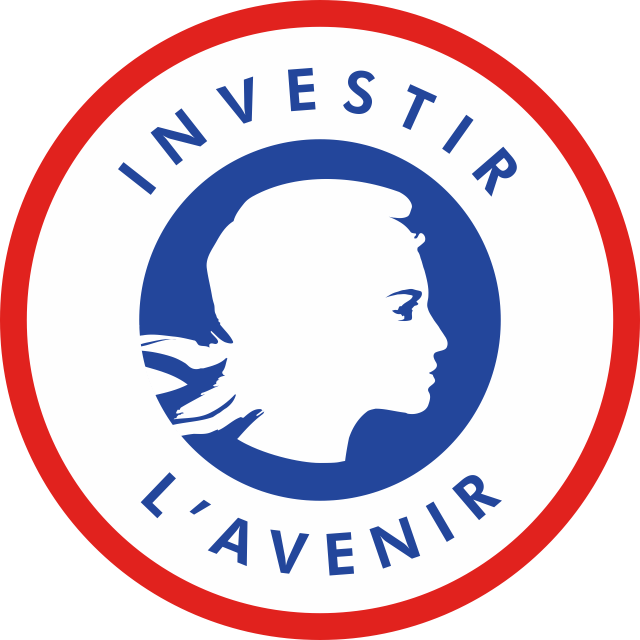Master programs
|
|
|
|---|---|
Agro-sciences, Environment, Territory, Landscape,
|
The aim of the degree in Agro-sciences, the Environment, Regions, Landscapes and Forest is to train specialists with a high level of scientific competence in the fields of management of natural, agricultural, rural and peri-urban areas, as well as management of natural resources. The course focuses on an integrative approach which is both cross-disciplinary and multi-scale. The aim is to educate students who are interested in areas of crossover between agricultural production, the environment, land management and global change. The course concentrates on modelling and its theoretical, mathematical and statistical foundations, as well as other research methods (experimental, participatory, surveys) which, when combined, enable a better understanding of complex agricultural, forestry and ecological systems. Students on the course learn to apply appropriate scientific methods to help address the major issues of resource management, in particular ecological issues (from maintaining biodiversity to controlling invasive species), food (from food deprivation to ecological methods of agricultural production) and the quality of resources (from soil fragility to air pollution) and space (from landscape and forest management to global climate change), both for the present day and on into the future. The first year of the Master’s degree deals with the key issues in society which affect the above-mentioned fields and includes any additional general subject areas needed to address these from natural, biotechnical and social sciences. This means that the basic foundations are acquired necessary for an integrative approach before the second year of the Master’s degree, where a more focused, in-depth study of subject knowledge and a deliberately cross-disciplinary approach takes place across the different specialities. In addition, this Master’s degree course places particular importance on students' independence and capacity for self-learning. Based on the solid foundation delivered in M1, which enables students to tackle environmental issues in all their complexity (different scales of time and space), the Master’s degree programme offers five different courses, allowing students to specialize. |
|
4 majors ranging from agronomy to ecology & forestry, including Climate Land Use & Ecosystem Services, a pathway particularly relevant to CLAND also proposed in STePE |
|
Land Management and Community Development (GTDL) |
Land Management and Community Development (GTDL) 3 majors ranging from governance of ecological transition to management of environmental risks (objective: 60 students graduating) The GTDL course is committed to an interdisciplinary approach to social sciences which is applied to the issues of biodiversity, agriculture, food and the environment. The main disciplines involved are ecological and political economy, agro-economics, political science, and law (land and environmental). This content places this unique course coherently within existing training available (local, national and international). The objectives of the GTDL course are to provide students with the necessary skills to analyse a situation related to local development and environmental issues, to anticipate future developments and to raise awareness, train and mobilise stakeholders around flexible and innovative collective strategies. The approach is innovative in that it offers training which focuses on the issue of managing the transition towards more sustainable development and what this transition implies: for regional stakeholders (M2 GTES), for stakeholders in the business world (M2 AEGR) and in terms of the development of developing countries (M2 DYNPED). Other GTDL courses which exist in France mainly focus on specific areas (urban, rural, etc.) without questioning the notion of development itself. |
| 3 majors ranging from governance of ecological transition to management of environmental risks | |
Biodiversity, Ecology, Evolution (BEE) |
The Biodiversity Ecology and Evolution degree at the Université Paris-Saclay covers a wide range of disciplines concerning the management and understanding of biodiversity in relation to the environment. This course aims to provide a very good understanding of the ecology, evolution and behaviour of living organisms in relation to their environment on an individual scale and right up to that of ecosystems and the biosphere. The challenges for society are also addressed, through the inter-relationship between mankind and nature, regional planning and governance. Scientific objectives include mastering theories and concepts on biodiversity, evolutionary and functional ecology, as well as the approaches used in modelling, experimentation, field monitoring, and quantitative methods in data analysis at different levels of integration, including genes, individuals, populations, communities, ecosystems and regions. The second year of the BEE degree is divided into 7 specialist courses on different areas of biodiversity management and understanding at all the various levels, from genes to the biosphere (EVEF, ECIRE, AEP, BGE, ACTES), as well as pollution management (PCGE). One of the courses serves as specific preparation for the national education recruitment examination for the ‘agrégation’ (teaching qualification) in Life Sciences, and Sciences of the Earth and the Universe. • Conservation ecology, ecological engineering: research and expertise ECIRE • Evolutionary and functional ecology EVEF • Ecological approach to the landscape AEP (apprenticeship) • Chemical pollution and environmental management PCGE • Biodiversity, genomics and the environment BGE • Knowledge about agro-ecology, regions and society ACTES • Higher education training in Life Sciences (preparation for the ‘agrégation’ SV-STU) ‘Agreg’ preparation |
| 11 majors ranging from genetics to ecological engineering, mixingbiology, ecology & social sciences | |
Environmental, Energy and Transport Economics (EEET) |
Global challenges, whether they relate to energy, food or the environment, require the use of knowledge from many different sources and integrated approaches. Graduates are required: to have a command of economic theory and its application to decision making; to be able to hit the ground running as soon as the degree is awarded by knowing how to set up data processing, statistical and econometric methods and the necessary IT resources; to understand political, economic and scientific challenges and be familiar with recent research developments; to have managerial knowledge (cost-benefit analysis, decision making under uncertainty, management of disputes) as well as ‘soft skills’ (knowledge of sectors, ability to debate on political issues, negotiation). The primary aim of the degree is to provide, through the M1 followed by the four possible M2 courses, training which deals with the whole range of issues concerning energy, the environment and food in terms of economic factors and in an analytical and future-orientated manner. Graduates must have the skills to design strategies to address energy, environmental and agri-food challenges, particularly in relation to climate change, overexploitation of natural resources, water and air pollution, land use (food/bioenergy) and the transition to a low-carbon world. They must be able to incorporate these strategies into the fields of production, services and consulting. They must also have the scientific knowledge to enable the most motivated to participate in both private and public research. Some core courses with a research focus provide the conceptual and theoretical elements to achieve these objectives. Thematic courses focusing on practical issues and their management in various sectors (new energies, water, forestry, waste, agriculture, bio-industries, etc.) enable students to become involved in different professional environments with the necessary objectivity to act in a managerial role. Three of the M2 courses are open to apprenticeships in order to promote access to students whose funding does not allow them to successfully complete higher education in particular, as well as to improve the CVs of university students with few work placements and little involvement in professional networks. Nevertheless, only about ten students out of the 110 on the M2 are authorized to follow a work-study programme, as the research element remains a dominant part of the course. |
| 3 majors related to economics- energy-environment modeling | |



